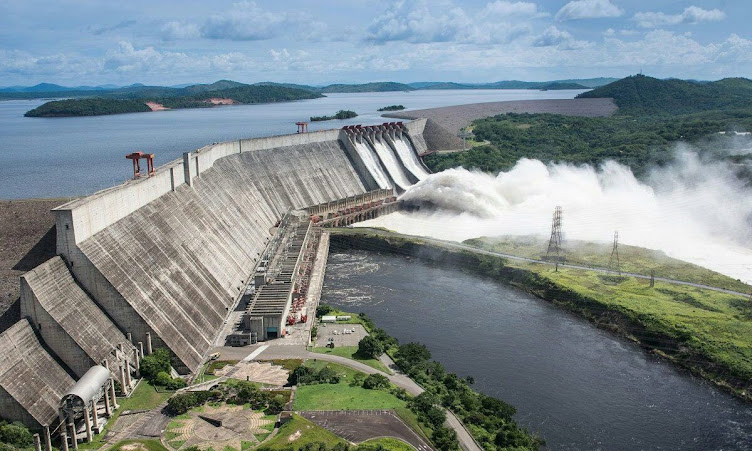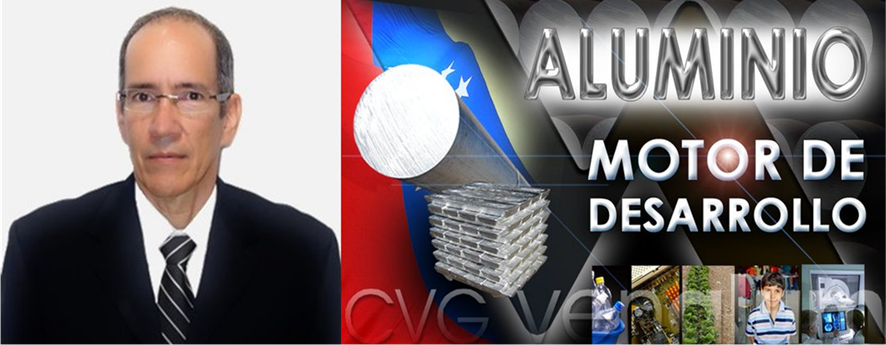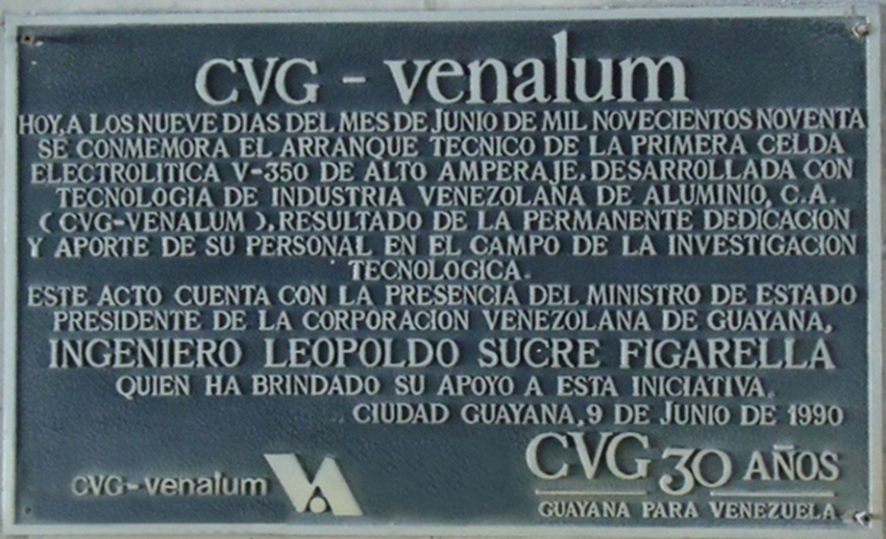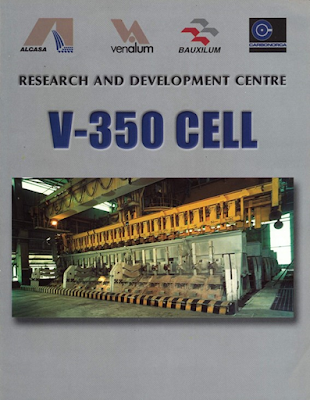Dr Jesus Imery was born in Río Caribe, Sucre State in 1960. He studied Physics at Universidad de Oriente, Sucre State, in the city of Cumaná.
He was Teacher Trainer in the subjects: Introduction to Electronics, General Physics, Mechanics for Engineers, and Physics Laboratories.
During his graduate thesis work he developed mathematical models to study the electrical properties of aluminium alloys. With the results of his work, on two occasions he represents Universidad de Oriente at the National Convention for the Advancement of Science.
Upon graduating in 1986, he began to work at the Venezuelan Aluminium Industry, CVG Venalum, in the recently created Research and Development Centre, initiating the Conceptual Design of the V-350 Cell and the line of experimental cells.
He then concentrates on the development of mathematical models for calculating current distribution and electromagnetic field in aluminium reduction cells, which are used for the optimized design of the busbar system, construction and successful operation of a Hall Héroult cell for the electrolytic production of aluminium, in a stable way and with an intensity of electric current higher than 300 kA., publishing this work in the Light Metals Conference, United States, in 1989:
J.Imery. Electromagnetic optimization of the V-350 Venalum Cell. Light Metals 1989, p.p. 211-214.
This design leads to the patent that protects the industrial property of the V-350 cells in 1990: Electromagnetic optimization of the electrolytic cell for the reduction of aluminium
Type: Invention
Registration: No: 90-0830. Date: 06/08/1990
Registration: No. 55,077
Dr Jesus Imery also contributes to the design of the lining of the V-350 cells, and during their construction and start-up stage, he plays an important role both in their commissioning and characterization.
The year 1990 served for the successful start-up, commissioning and performance of the Venezuelan Aluminium Reduction Technology, The V-350 Cell, designed by the multidisciplinary team of Venalum engineers, and whose purpose was the design of a proprietary technology to serve as technology for new aluminium projects, both for Venalum and for projects with international private investment in Venezuela, an initiative that was supported by the Minister of State and President of the Venezuelan Corporation of Guayana, CVG, Engineer Leopoldo Sucre Figarella.
Plaque of recognition of the Minister of State President of the Venezuelan Corporation of Guayana Engineer Leopoldo Sucre Figarella on the occasion of the startup of the V-350 Cell on June 9, 1990
The knowledge and experience gained during the design, construction, and commissioning of the V-350 cells are likewise reverted to the rest of the company through technical assistance programmes, with particular emphasis on the reduction area. In order to strengthen the image of CVG Venalum, results of the work in the V-350 cells, as well as in technical assistance, have been presented at national and international events of recognized prestige.
Venezuela has its own bauxite, gas, electricity, as well as its own development and design of aluminium reduction cell technology, The V-350 Cell, which was successfully tested in 1990, 10 years before any other design of successful aluminium high amperage cell, higher than 300kA., in the world.
100% Venezuelan Reduction Technology. The V-350 Cell
The Design and Development of High-amperage Cell Technology for the reduction of aluminium, carried out by the Research and Development Centre of CVG Venalum, marked a milestone in the history of Science and Technology in Venezuela, and a milestone worldwide in the area of aluminium reduction: first design in the world for the year 1990 to successfully operate at amperage levels higher than 300 kiloamperes.
V-350 was the best high amperage cell technology above 300 kA between 1990 and 2000, before any other successful technology design from any country in the world.
As reported by Dr. Alton Taberaux in the Journal of Metals, JOM, 52 (2) (2000), pgs. 22-28, by the year 2000, the only cells operating at the maximum amperage of 320 kiloamps in the aluminium industry worldwide were:
- The V-350 Cell, CVG Venalum, Puerto Ordaz, Venezuela, and
- The P-320 Cell, Pingguo, China.
“Venalum in Puerto Ordaz, Venezuela, developed five side-by-side V-350 point-fed PB cells, four side risers, with 36 anodes operating at 320 kA on their development line”.
Prebake Cell Technology: A Global Review
In 1992, part of the multidisciplinary group of the R&D Centre, through agreements between CVG Venalum, and the National Council for Scientific and Technological Research, CONICIT, for the Training and Specialization of Researchers, takes part in specialization programmes covering master’s and doctoral degrees in the areas of Systems Engineering, Computing, Instrumentation, Electronic Engineering, Mechanical Engineering, Engineering and Materials Science.
These programmes were held in England, the United States and Spain. This has been the only agreement of this nature celebrated and implemented between the National Council for Scientific and Technological Research, CONICIT, and the Industry.
In 1992, Dr Jesus Imery was part of the first group of CVG Venalum professionals through this agreement, for the formation of a group of high academic level with previous industrial experience, to complement, increase and consolidate its specialized technical support capacity for the Aluminium Sector, in addition to implementing policies with a multiplier effect of this knowledge and expertise that must be used both for the training of the successor generations, and to reinforce the technical level of company staff.
In 1996 he returned to CVG Venalum after having successfully completed his PhD studies in Engineering and Materials Science at Imperial College, London.
In this second stage of work at CVG Venalum, he resumes his technical assistance activities, but now he is also focused on collaborating in the structuring of a National AluminIum Plan, the promotion of the aluminium industry, and the expansion of installed capacity. This work shows an important advance in 2000 when he coordinates the representation of the Venezuelan Aluminium Sector in our National Pavilion at EXPO 2000 Hannover in Germany, and at the Aluminium 2000 Symposium in Puerto Ordaz.
In both events, the promotion of the country’s potential for the efficient production of aluminium is formally relaunched, thus reversing the smear campaign that had been maintained on this important link in the national economy. Likewise, the new Project of the V Line of CVG Alcasa, based on the use of National Technology, The V-350 Cell, is presented for the first time, also considering important aspects for the recovery of CVG Alcasa.
Those first achievements of the tireless work of rescuing and promoting the image of the Venezuelan Aluminium Sector internationally that Dr Jesus Imery and a group of colleagues advanced, were again strengthened in 2003 through the participations, organized by the Research and Development Centre of CVG Venalum in the Aluminium and Energy Congress in South Africa, and the Congress of the Commodities Research Unit (CRU) in the United States, where the international community of the aluminium business was formally shown the new approach that would be giving to the sector. In 2004 he also participated in the TMS 2004 Congress, in the United States, where the CVG Venalum Expansion Plan, which includes the Sixth and Seventh Lines, was shared with the international community.
Industria Venezolana de Aluminio, C.A., CVG Venalum. In the background, view of the CVG Venalum Expansion Project Design, Lines VI and VII. Photo and Design: CINTAL
Simultaneously with these activities, Dr Jesus Imery works on the conceptual and basic design of the Expansion Plan for CVG Venalum and participates in obtaining the financial resources for its execution, as well as in the definition of the guarantee of the electricity and alumina supply for the stable, profitable, and sustainable operation of these projects.
He also keeps his line of work of technical assistance to the plant, and coordinates the activities related to The V-350 Cell, and the specialized technical assistance that the R&D Centre offers to CVG Venalum in the reduction area.
In 2005, Dr Jesus Imery is called to collaborate with the management of the newly created Ministry of Basic Industries and Mining, beginning his managerial duties as a member of the Board of Directors of CVG Alcasa, where, teaming up with the Director, Dr Juan Guzmán, manage to form a work team that puts all the electrolytic cells of Line III into operation in record time.
Since April 2005, he was in charge of the Presidency of CVG Bauxilum, where he implements a participatory management, having to solve a rarefied labour atmosphere, even counting on the presence of a conflicting statement introduced by the workers’ union in the previous administration of the company.
CVG Bauxilum showed a different reality, having exceeded historical production in 2005, notably recovering the work environment, reporting net profits, as well as ready to promote its expansion project to more than three million tons of alumina per year.
Additionally, the management of CVG Bauxilum overflowed its borders, having promoted at the National Executive level the construction of a caustic soda plant, an input that represents more than 70% of the company’s raw material budget.
Likewise, a strategic alliance was promoted and consolidated with the company Saint-Gobain for the construction in Puerto Ordaz of a plant for the production of proppants, this, an important input used to optimize gas and oil wells, being imported by PDVSA the entire of this product.
Aware of the need to increase the degree of added value to our natural resources, as well as to generate new sustainable economic activities, He promotes the industrial use of granite deposits discovered and studied in areas surrounding the bauxite mine, obtaining approval of the Presidency of the Republic for the allocation of the necessary funds to undertake this project.
Work was carried out jointly with the company CVG Conacal for the construction of a lime plant that would cover the future needs of both CVG Bauxilum and the new steel company that would be built by the Ministry of Basic Industries and Mining.
His work as President of CVG Bauxilum was recognized by the Venezuelan Press Federation, FEVEPRENSA, through the granting in April 2006 of El Sol Dorado Personality of the Year Award, Business Mention.
During November and December 2005, he was appointed as Principal Director of the Rolling Mill company CVG Alunasa, located in Costa Rica, and as President of the first Aluminium Technological Innovation Centre, CINTAL.
As President of CINTAL, Dr Jesus Imery works together with important researchers belonging to the Research and Development Centre of CVG Venalum for the consolidation of this centre, where the priority activities in its creation phase, are the consolidation of expansion projects, the economic recovery of companies in the national aluminium sector, and the development of value-added projects for its subsequent promotion, fundraising and implementation.
Likewise, from CINTAL, Dr Jesus Imery promotes aluminium not only as an economic activity, but as a tool of territorial development, and CINTAL designed the Conceptual Engineering of two Aluminium Cities, located respectively in Caicara del Orinoco and El Palmar.
Among the achievements of his performance as an academician, he highlights the fact that many students, of whom he served as an academic or industrial tutor, are today excellent professionals, some of them working not only in Venezuela but also in the United States, Canada and Germany.
As for his contributions as a Researcher, in addition to his high level of results, his special entrepreneurial spirit and ability to guide, motivate and lead multidisciplinary work teams stand out.
Currently, Dr Jesus Imery leads a multidisciplinary group of professionals with high national and international academic level and extensive experience in the development and implementation of technical and managerial solutions in the aluminium industry, with experience in the development of technologies for the aluminium production, such as parts, components, equipment, control, supervision and information systems, plants.
This high-level group has worked for more than three decades within the aluminium industry, also with a high level of success in managerial positions, and positions as members of Boards of Directors of companies for the exploration, extraction, handling and transport of bauxite, production of alumina, reduction of aluminium, rolling, wire drawing and manufacture of electrical conductors.
They have also been professors and lecturers at universities, and tutors in the industry, in the areas of Engineering and Materials Science, Mechanical Engineering, Industrial Automation and Process Control, Information Technology, Control Systems and Supervision of industrial processes, Electrical Engineering and Computing, among other areas.
In addition to academic training, technical and managerial experience in the Aluminium Industry, having studied in countries such as England, Norway, the United States and other European countries, has allowed the group to assimilate the strategies of these countries, in terms of planning of their potentialities to structure government policies that have allowed them to grow importantly in the technological and productive sectors, which support the high standard of living of the inhabitants of these countries.
The reconstruction of Venezuela will require not only the recovery of the existing industrial park by the end of the 20th century, but also the planning of the execution of productive growth projects. To undertake these tasks, Venezuela has the Aluminium Industry as an important ally for such noble goals, as have the Countries of the Cooperation Council for the Arab States of the Gulf, who have seen in this industry a powerful tool for diversification of its economy and the generation of wealth and well-being.
Given his career and successful experiences as a Researcher, Academician, Head of Industrial Operations, Manager, CEO and President of large companies, as well as an internationally recognized Specialist and Advisor, Dr Jesus Imery is the high-level specialist to lead very assertively in the areas of Industry, Technology, and Innovation, for the Comprehensive and Harmonic Planning of Venezuela, especially in the Planning of the National Aluminium Sector.











No comments:
Post a Comment